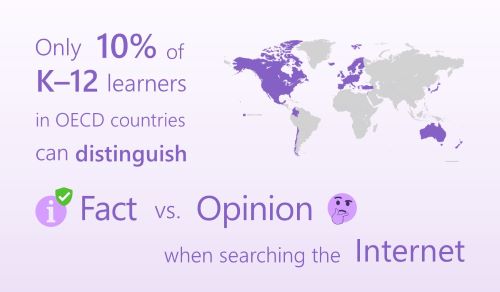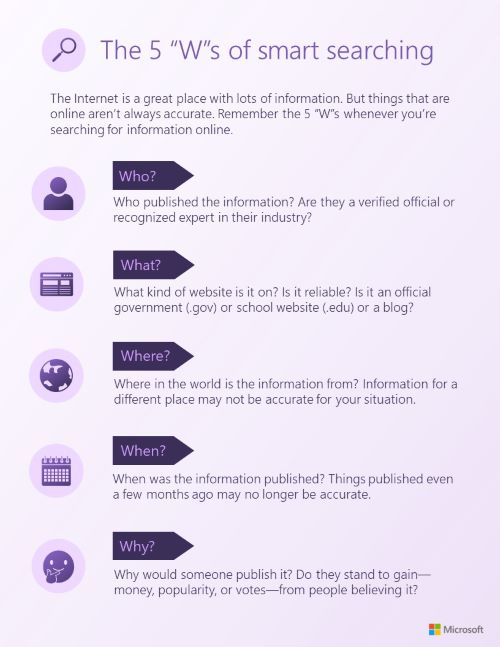Why search strategies matter
Today's learners are faced with multiple challenges when using the internet as a research tool. The rapidly growing global repository of sites on the internet is often overwhelming and deciding whether a resource is reliable can prove difficult given the prevalence of polished, yet false and misleading information available on the internet.
In fact, the Stanford History Education group found that 82% of middle school students can’t tell the difference between an ad and a news story, and a study from The Organisation for Economic Co-operation and Development (OECD) shows that only 10% of K-12 learners can distinguish fact from opinion. Even higher-ed learners use ineffective strategies when researching on the internet.
Only 10% of K–12 learners accessible PDF
Alan November, an international leader in educational technology, discusses the importance of effective search strategies. November cites a Stanford History Education Group study, led by Dr. Sam Wineburg and other researchers. This study states, "At present, we worry that democracy is threatened by the ease at which disinformation about civic issues is allowed to spread and flourish... If the children are the future, the future might be very ill-informed." November advises, "We need a national and local commitment to prepare our students to become critical thinkers in our omnipresent digital world as well as the world of paper." To build information literacy, learners need the guidance and assistance of all educators; from librarians, class educators, and district leaders in K-12, to professors at colleges and universities.
Search Coach and Search Progress are free apps in Microsoft Teams for Education that support learners in forming effective search queries, reflecting on their research processes, and identifying reliable resources. Learners using these tools build their web search skills in a safe, advertisement-free environment, and the techniques they learn are applicable to traditional search engines. Educators using Search Coach have access to resources such as lesson plans and Insights to support learners gaining information literacy skills.
Smart searching accessible PDF

